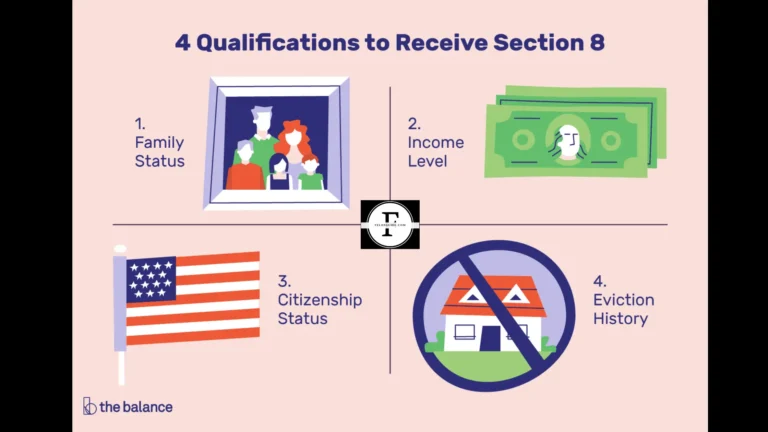If You Have An Eviction Can You Still Rent In Another State?
Does your rental history follow you from state to state? What about eviction history? If you have an eviction, can you still rent in another state, or do landlords nationwide have access to your records?
If You Have An Eviction Can You Still Rent In Another State 2024?
You can still rent in any state after an eviction if you find a landlord willing to accept your rental history. While many landlords do background checks and/or refuse to rent to evictions, some landlords offer second-chance rentals. Second-chance rental criteria for tenant acceptance vary. You may need it to get a second chance at renting.
- Pay off any debt associated with your eviction
- You must provide a signature or guarantor who will pay the rent if you are in default
- Offer a higher security deposit desired or several months’ rent to help alleviate landlord concerns
- Accept a month-to-month lease with less risk for the landlord
Do Evictions Follow You From State To State 2024?
Yes, they do. Unfortunately moving to a different state doesn’t let you start with a clean slate. So how do evictions manifest in different states? Eviction orders issued by the local courts are public records. These records are available to landlords in any state country conducting background checks on potential renters.
Even if you move out before the court hearing and no eviction judgment has been issued against you, filing an eviction notice will still be a red flag to a potential landlord. A comprehensive tenant background screen includes a public records search for eviction filings and eviction orders, while a basic background check only looks for criminal records.
Large apartment communities, property management companies, and experienced landlords typically choose a comprehensive report. As long as you have not expunged the eviction record, the eviction filings free of charge filings, and related judgments of possession will follow you no matter which state you move to.
Expungement of records is a legal process that removes court records from public view. When you’re house hunting, an expungement record will not show up on a background check.
How Long Do Evictions Show Up In Other States?
An eviction is a civil judgment The Federal Fair Credit Reporting Act (FCRA), which governs consumer reports issued by third parties, allows civil judgments to be reported for up to 7 years from the date of the judgment.
This means that background check agencies can’t report your eviction after the judgment is seven years old unless the landlord asks the court to renew the judgment If the amount is still due. A landlord is not bound by the FCRA to conduct a personal search of court records. Court records are generally available to the public indefinitely unless the records are unsealed.
Do Evictions Show Up In Other States If A Court Wasn’t Involved?
Tenants often confuse termination of a lease with eviction, but it is not an eviction because termination of a lease does not involve a court order. Termination of a lease is a private matter between you and your landlord because there is no civil judgment, so a public records search will not find an eviction record.
If you received an eviction notice from your landlord and left by the date on the notice, your lease was terminated and you were not officially evicted. A potential landlord may still find out about a lease termination if they contact your previous landlord for rental references. Debt related to unpaid rent may also appear on your credit report.
Does Rental History Follow State To State 2024?
Personal information (credit reports, criminal records, and civil) judgments are shared across state boundaries.
Background check agencies have access to national databases and records for all 50 states. These data are used to compile background reports for potential employers.
Landlords obtain your rental history in two ways:
- Through information obtained about your credit history during a background check
- By contacting the house owner of the proof listed on your request
Information In Your Credit Report
Corporate landlords and many private landlords who use property management companies or rent payment services report late payments to the credit bureaus when 30 days are past due. These missed payments will appear on your credit report.
Rental debts sent to a collection agency may also be reported to the credit bureaus and may appear on your credit report. Order copies of your credit report from each credit bureau – Experian, Equifax, and TransUnion – to find out if late or unpaid rent appears on your credit report.
You are entitled to a free credit report from every agency once a year. The Federal Trade Commission lists three ways to get free credit reports:
- Order your reports at https://www.annualcreditreport.com/
- Call 1-877-322-8228
- Complete and mail the form at https://www.consumer.ftc.gov/sites/www.consumer.ftc.gov/files/articles/pdf/pdf-0093-annual-report-request-form.pdf
References From Your Previous Landlords
Prospective landlords can contact your ex-pat location to get rental references. Common questions they will ask include:
- Did they pay rent on time?
- Did they cause any damage to the property?
- Were there any complaints from neighbors?
- Did they give proper notice to vacate?
- Would you rent to them again?
How To Get An Eviction Off Your Record in 2024
You can petition the court that entered the eviction judgment against you to have the eviction removed from your record and expunge your record.
If you are successful, the eviction record will not be available to landlords or background check agencies in any state.
Check the law in your state or contact a housing rights organization to find out if your eviction qualifies for eviction and what to do next.







